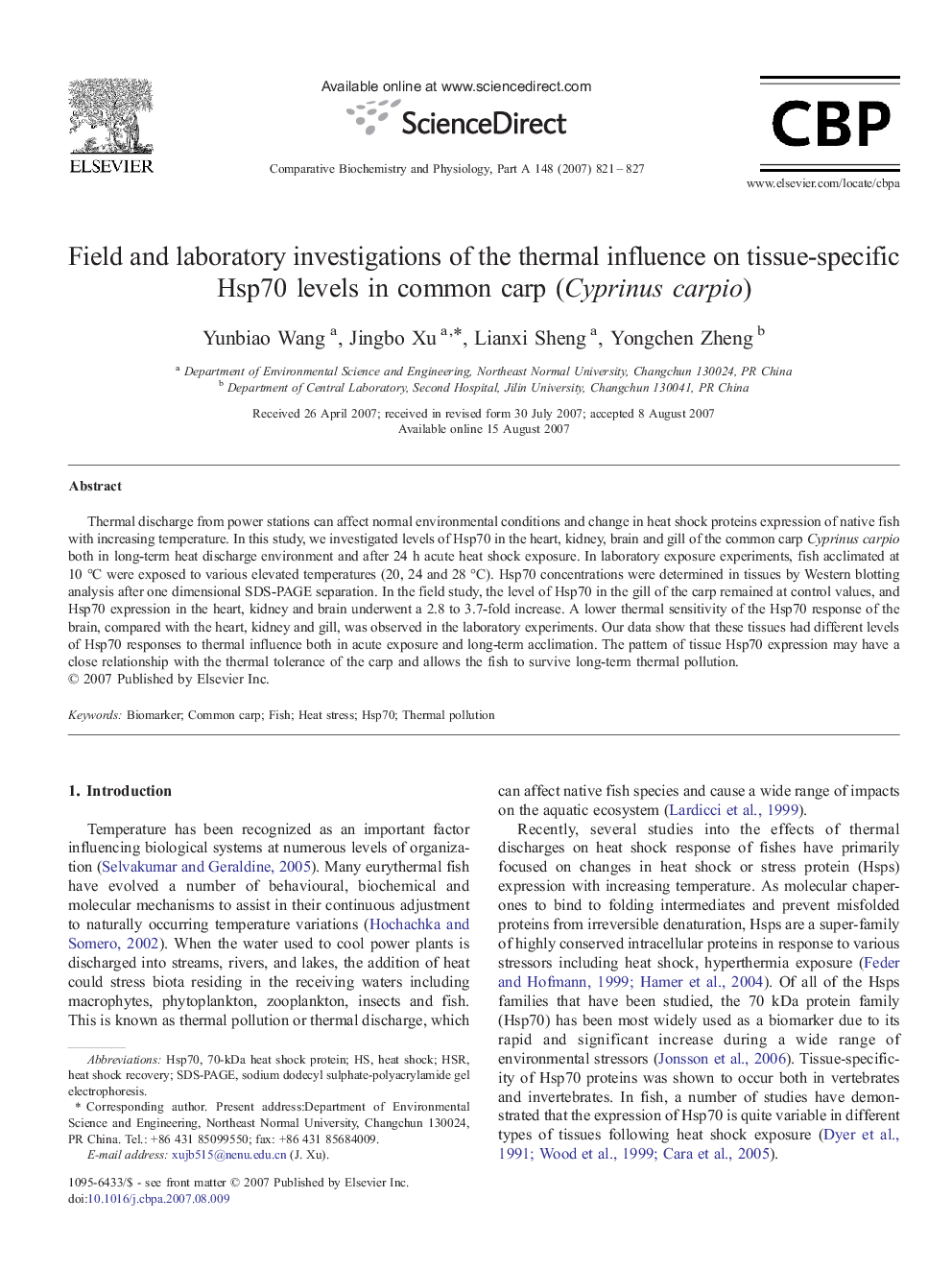| Article ID | Journal | Published Year | Pages | File Type |
|---|---|---|---|---|
| 1974074 | Comparative Biochemistry and Physiology Part A: Molecular & Integrative Physiology | 2007 | 7 Pages |
Thermal discharge from power stations can affect normal environmental conditions and change in heat shock proteins expression of native fish with increasing temperature. In this study, we investigated levels of Hsp70 in the heart, kidney, brain and gill of the common carp Cyprinus carpio both in long-term heat discharge environment and after 24 h acute heat shock exposure. In laboratory exposure experiments, fish acclimated at 10 °C were exposed to various elevated temperatures (20, 24 and 28 °C). Hsp70 concentrations were determined in tissues by Western blotting analysis after one dimensional SDS-PAGE separation. In the field study, the level of Hsp70 in the gill of the carp remained at control values, and Hsp70 expression in the heart, kidney and brain underwent a 2.8 to 3.7-fold increase. A lower thermal sensitivity of the Hsp70 response of the brain, compared with the heart, kidney and gill, was observed in the laboratory experiments. Our data show that these tissues had different levels of Hsp70 responses to thermal influence both in acute exposure and long-term acclimation. The pattern of tissue Hsp70 expression may have a close relationship with the thermal tolerance of the carp and allows the fish to survive long-term thermal pollution.
